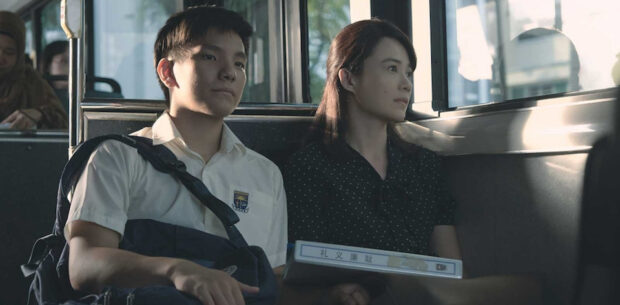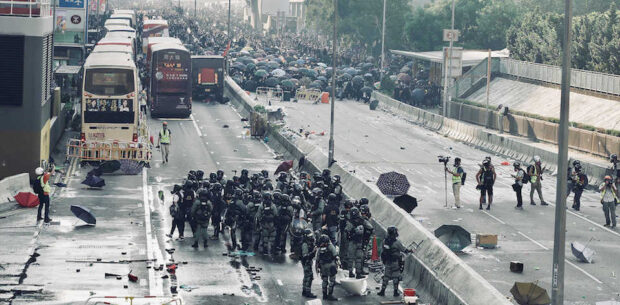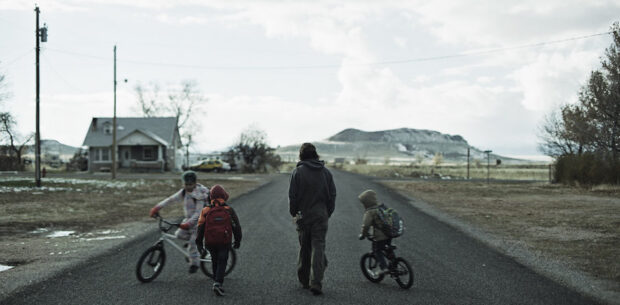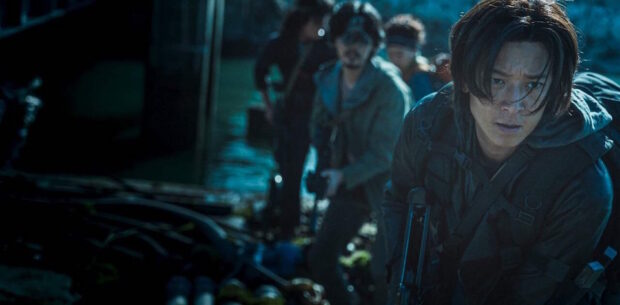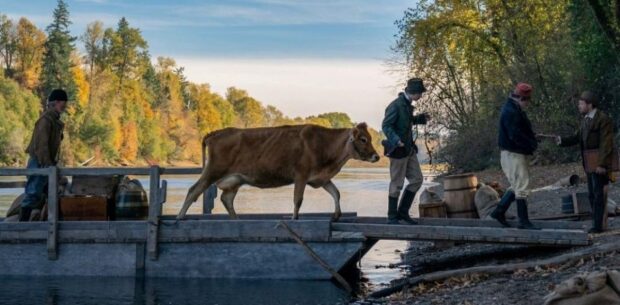As one of the more prominent figures in Japanese culture, infamous swordsman and philosopher Miyamoto Musashi has seen his share of screen time. From the earliest days of cinema through to outings by Daisuke Ito and Kenji Mizoguchi, the legendary warrior was perhaps most famously portrayed by Toshiro Mifune in Hiroshi Inagaki’s Samurai Trilogy.
So, director Yûji Shimomura’s samurai epic comes with the weight of history and expectation. CRAZY SAMURAI MUSASHI (狂武蔵) depicts one of his most famous battles, as we watch him take on a veritable battalion of 588 warriors and cut them down one-by-one. Shimomura’s stylistic spin is to do it all in single scene, no-cut action sequence.
At barely 90 minutes, the film is significantly shorter than the 10-hour epics that have gone before. The film kicks into high gear about seven minutes into proceedings with a dramatic title drop and, backed by Hidehiro Kawaii’s thumping score, barely lets up from there. From this point on, Musashi (portrayed here by Tak Sakaguchi, reteaming with Re:Born helmer Shimomura) fights his way through a sea of would-be assassins.
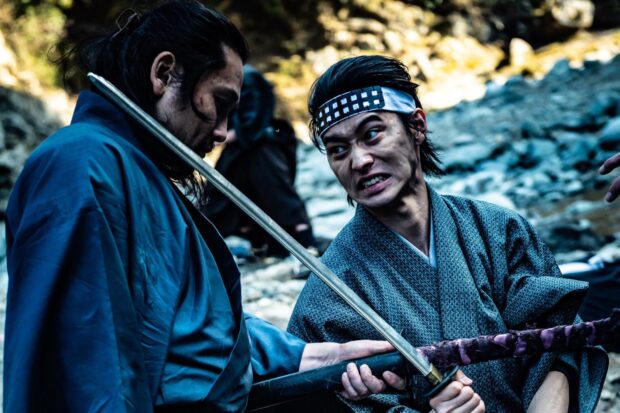
Curiously, this comes with a script from avant-garde maestro Sion Sono, although save for the excessive amount of bloodletting, you wouldn’t necessarily feel his fingerprints on the material. Still, this seems to be primarily an exercise in action choreography, a field that Shimomura is primarily known for. Indeed, once the action gets going there isn’t a single line of dialogue for close to 10 minutes.
The decision to shoot this as one long action sequence ensures constant momentum. Once we’re in the thick of it, the camera rarely leaves Sakaguchi’s side. There are a few breaks given to the lead, of course, and one sidebar fight adds some much-needed levity to the melee. It’s almost structured like a video game, complete with mini-bosses and cut-scenes for respite. At the apex, an exhausted and rain drenched Sakaguchi is swinging two swords and still taking on groups of opponents.
Yet the overall effect is a little bit numbing as well. After the novelty of the lengthy fight sequences has worn off, one starts to get distracted by any detail onscreen. After all, there’s only so much digital bloodletting one can watch before noticing that all the extras are laboriously falling or crawling off camera so Shimomura can keep rolling. Still, this is an ambitious exercise and perhaps it’s best viewed as a big, bloody, arty experiment.
In a coda to the film, one that flashes forward in time to a different moment in the Mushashi legend, Shimomura reverts to a more traditional multi-shot sequence. In some ways, it would have been interesting to see an entire film in this style, as it’s a jolt to the senses after almost an hour of fighting. Nevertheless, this is unquestionably bound for cult classic status.
CRAZY SAMURAI MUSASHI is playing at Fantasia 2020.
2020 | Japan| DIRECTOR: Yûji Shimomura | WRITER: Sion Sono | CAST: Tak Sakaguchi, Kento Yamazaki | DISTRIBUTOR: Fantasia Festival 2020 (Canada) | RUNNING TIME: 91 minutes | RELEASE DATE: 20 August-2 September 2020 (MIFF)
Read more coverage of Japanese cinema from the silent era to festivals and other contemporary releases. Plus go beyond Japan with more film from Asia in Focus.







